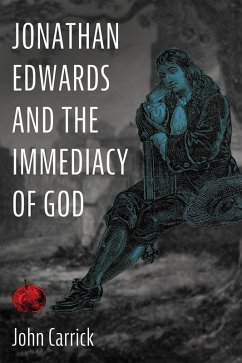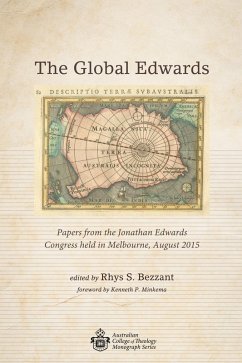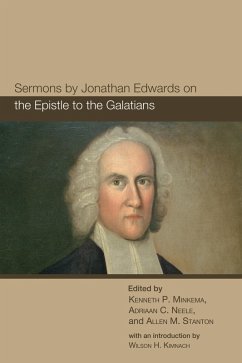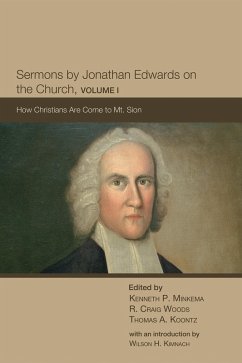
Jonathan Edwards and the Immediacy of God (eBook, ePUB)
Versandkostenfrei!
Sofort per Download lieferbar
12,95 €
inkl. MwSt.
Weitere Ausgaben:

PAYBACK Punkte
6 °P sammeln!
Jonathan Edwards is one of the outstanding figures in the history of the Christian church--he was, quite simply, a man of towering intellect and towering spirituality. But it has been noted, even by his friends and admirers, that his thought is also marked at times by certain idiosyncrasies which inevitably introduce certain complexities into his philosophical-theological system. This study contends that the theme of divine immediacy is the controlling theme and the correlating principle within Edwards's thought. It analyzes the theme of divine immediacy in the thought of Jonathan Edwards unde...
Jonathan Edwards is one of the outstanding figures in the history of the Christian church--he was, quite simply, a man of towering intellect and towering spirituality. But it has been noted, even by his friends and admirers, that his thought is also marked at times by certain idiosyncrasies which inevitably introduce certain complexities into his philosophical-theological system. This study contends that the theme of divine immediacy is the controlling theme and the correlating principle within Edwards's thought. It analyzes the theme of divine immediacy in the thought of Jonathan Edwards under four major heads: creation, the will, ecclesiology, and spiritual experience. Indeed, Dr. Carrick claims that the theme of the immediacy of God is the Ariadne's thread, which runs with consistency through the multiple aspects of Edwards's philosophical, theological, ecclesiological, experiential, and homiletical interests. But sometimes a man's strength is also his weakness, and it would appear that Edwards's profound commitment to the concept and the reality of the immediacy of God entails significant problems for his entire philosophical-theological system. Edwards's concept of divine immediacy finds its supreme expression, surely, in his doctrine of continuous creation; but is it not the case that this doctrine of continuous creation is in conflict with his determinism, that its tendency is to destroy the moral responsibility of man, and that it makes God both the author and the actor of sin? In short, is it not the case that Edwards's Ariadne's thread is, in fact, also his Achilles' heel?
Dieser Download kann aus rechtlichen Gründen nur mit Rechnungsadresse in A, D ausgeliefert werden.













